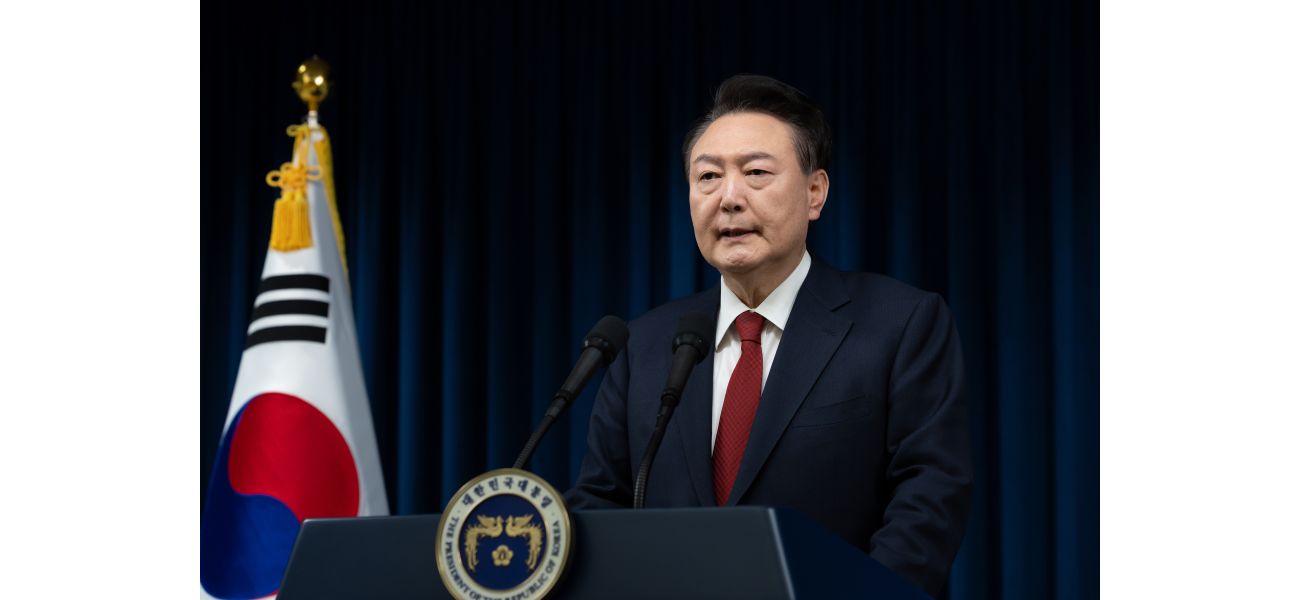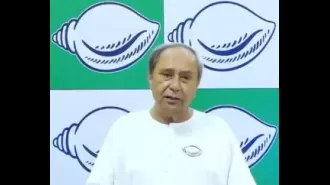A court in South Korea has ordered the arrest of President Yoon Suk Yeol.
South Korean court approves arrest warrant for President on charges of abuse of authority and rebellion.
December 31st 2024.

On Tuesday, a court in South Korea made the decision to issue an arrest warrant for President Yoon Suk Yeol. This is the first time a sitting president in South Korea has faced such an action. The warrant was granted on charges of abuse of authority and orchestrating a rebellion, according to the country's anti-corruption agency.
This comes after Yoon's controversial decision to declare martial law nearly a month ago, which sparked political chaos in the country. His actions were met with strong opposition, including from members of his own ruling party who voted to impeach him earlier this month. Despite this, Yoon refused to resign, leading to further backlash and investigations against him.
Yoon, a former prosecutor, has been avoiding the investigations and has refused to cooperate with authorities, which ultimately led to the issuance of the arrest warrant. He is facing multiple charges, including leading an insurrection, which carries severe penalties such as life imprisonment or even the death penalty. This led to law enforcement officials requesting the arrest warrant on Monday.
However, Yoon's lawyer, Yoon Kab-keun, has called the warrant "illegal and invalid," stating that it was requested by an agency that does not have the authority to do so. He also criticized the lack of transparency in the warrant request process.
According to the Corruption Investigation Office, an arrest warrant must be executed within seven days, but it can be extended. Yoon's case is further complicated by the fact that he is also facing a Constitutional Court trial to determine whether he will be formally removed from the presidency or reinstated. This process could take up to six months.
The court held its first pretrial hearing on December 27, but Yoon was not in attendance, as his presence is not mandatory. The court has promised to prioritize this case, along with other impeachment cases against Yoon's administration, including the justice minister and prosecutors.
However, the court currently only has six sitting justices out of the required nine, which could further delay the decision. Under South Korean law, at least six out of nine justices must approve an impeachment for it to be upheld. The court has not yet decided whether the six sitting justices can rule on Yoon's fate, but if they can, all six must vote in support of the impeachment to formally remove him from office.
In the meantime, Yoon has been banned from leaving the country, and several top officials from his government have been arrested and indicted for their involvement in the rebellion. The political uncertainty in the country was further heightened when the prime minister and acting president, Han Duck-soo, was also impeached by parliament last Friday for his refusal to fill vacant seats in the Constitutional Court.
The finance minister and deputy prime minister, Choi Sang-mok, has assumed the role of acting president in the wake of these impeachments. However, he is facing a difficult task, not only dealing with a political crisis but also leading a country in mourning after a tragic aviation disaster that claimed the lives of almost all passengers and crew on a flight from Bangkok to Muan county.
This comes after Yoon's controversial decision to declare martial law nearly a month ago, which sparked political chaos in the country. His actions were met with strong opposition, including from members of his own ruling party who voted to impeach him earlier this month. Despite this, Yoon refused to resign, leading to further backlash and investigations against him.
Yoon, a former prosecutor, has been avoiding the investigations and has refused to cooperate with authorities, which ultimately led to the issuance of the arrest warrant. He is facing multiple charges, including leading an insurrection, which carries severe penalties such as life imprisonment or even the death penalty. This led to law enforcement officials requesting the arrest warrant on Monday.
However, Yoon's lawyer, Yoon Kab-keun, has called the warrant "illegal and invalid," stating that it was requested by an agency that does not have the authority to do so. He also criticized the lack of transparency in the warrant request process.
According to the Corruption Investigation Office, an arrest warrant must be executed within seven days, but it can be extended. Yoon's case is further complicated by the fact that he is also facing a Constitutional Court trial to determine whether he will be formally removed from the presidency or reinstated. This process could take up to six months.
The court held its first pretrial hearing on December 27, but Yoon was not in attendance, as his presence is not mandatory. The court has promised to prioritize this case, along with other impeachment cases against Yoon's administration, including the justice minister and prosecutors.
However, the court currently only has six sitting justices out of the required nine, which could further delay the decision. Under South Korean law, at least six out of nine justices must approve an impeachment for it to be upheld. The court has not yet decided whether the six sitting justices can rule on Yoon's fate, but if they can, all six must vote in support of the impeachment to formally remove him from office.
In the meantime, Yoon has been banned from leaving the country, and several top officials from his government have been arrested and indicted for their involvement in the rebellion. The political uncertainty in the country was further heightened when the prime minister and acting president, Han Duck-soo, was also impeached by parliament last Friday for his refusal to fill vacant seats in the Constitutional Court.
The finance minister and deputy prime minister, Choi Sang-mok, has assumed the role of acting president in the wake of these impeachments. However, he is facing a difficult task, not only dealing with a political crisis but also leading a country in mourning after a tragic aviation disaster that claimed the lives of almost all passengers and crew on a flight from Bangkok to Muan county.
[This article has been trending online recently and has been generated with AI. Your feed is customized.]
[Generative AI is experimental.]
0
0
Submit Comment





